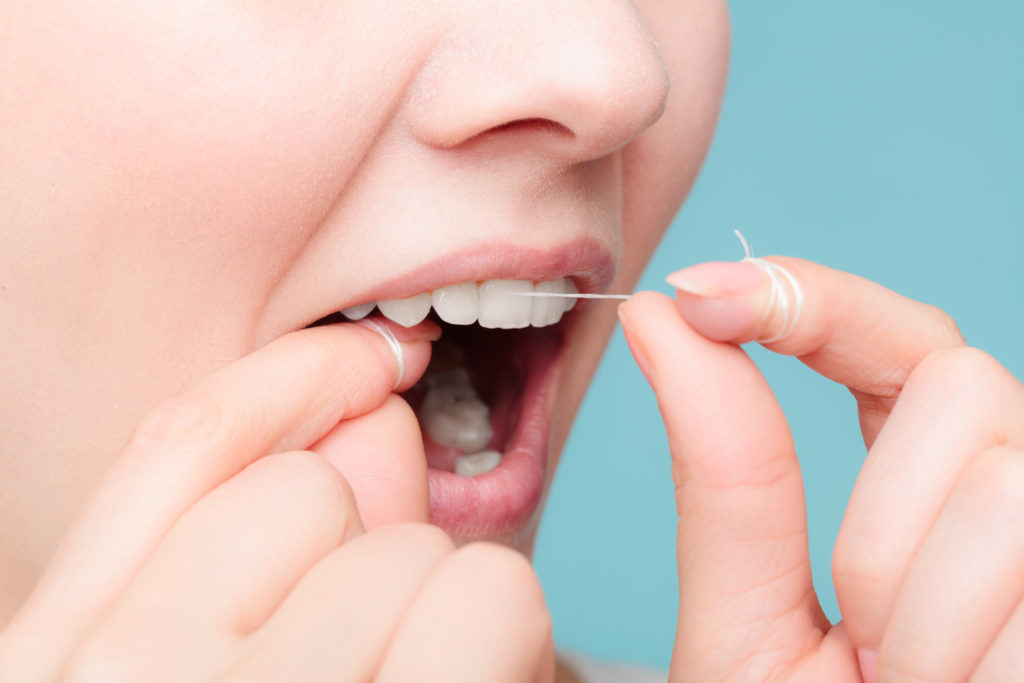Do I Really Need to Floss?

As a family dentist in Beaverton that’s committed to the oral heath of his patients, Dr. Richard Barrett firmly believes that preventative care is the cornerstone of total health. When it comes to patients maintaining their oral health, it all begins with an excellent home care routine. That means thorough brushing AND flossing, every day.
Dr. Richard Barrett was raised in a dentally focused home. Both of his parents were dental hygienists, so the value of proper home care was instilled in him from an early age. His father used to say, “You only have to floss the teeth you want to keep.” At the time, this just seemed like a silly comment to try and scare his children into flossing, but as Dr. Richard Barrett would find out, it was absolutely true.
Why You Really Do Need to Floss
The truth is most people don’t floss, and the few that do usually don’t do it daily. One of the first questions we ask a patient when we meet them is, “How often do you floss?” The numbers are shocking.
At Barrett Family Dental, we provide restorative care to treat tooth decay, and 90 percent of the decay we see occurs between the teeth, usually the back molars. Decay in these areas is solely the result of patients not flossing.
So, is that why is flossing so important?
The simple answer is yes. The toothbrush can’t reach between the hard to clean areas. Our teeth have a curved profile and as they move upwards away from our gums they slowly widen. Normally, they come into contact with their neighbor tooth 2/3rds of the way to the chewing surface and form what we call an “interproximal contact.” This “interpoximal contact” prevents food from getting stuck between the teeth and allows our teeth to be optimally efficient when chewing. But, it also makes it a little harder to clean. When you floss, you pass the thin flossing material between the interproximal contact and clean out the area between it and the gums.
As a family dentist in Beaverton, Dr. Richard Barrett is often asked about using “flossing alternatives,” such as a Waterpik or the flossers with handles. The truth is, nothing works better than traditional floss wrapped around two fingers. When you use traditional floss, it allows you to floss between the contact and gently wrap the floss around each tooth to ensure nothing is left behind. Flossers with handles don’t allow for that much freedom. They are better than nothing, but a poor substitute for traditional finger held floss.
What about using a Waterpik? At Barrett Family Dental, we love Waterpiks. They are a great tool when used properly, but their proper use does not include being a flossing substitute. Unfortunately, many companies market these devices as “water flossers” which gives the impression they can be used instead of flossing. This is simply inaccurate marketing which is targeting the large portion of consumers who don’t floss but know they should.
The problem is, bacterial plaque quickly forms a very sticky colony on the teeth that needs to be physically removed. Waterpiks don’t have the pressure needed to do this; they are designed to irrigate the gum tissue. Using a Waterpik instead of flossing would be akin to swishing water instead of brushing. It simply doesn’t do the job.
Failure to Floss Leads to Gum Disease
When discussing flossing with our patients at Barrett Family Dental, one complaint we often hear is that “flossing hurts” so they often don’t do it. The reason flossing is painful is because the gums beneath the contact are swollen and raw.
When bacteria is allowed to remain below the contact for an extended period of time, it severely irritates the gums and makes flossing painful. Our gum tissue is extremely strong and tough. It contains keratin, which is the same fibrous material that makes up our hair. When kept clean, this tissue stays resilient and flossing does not cause any discomfort. If you experience pain when flossing, try flossing everyday for a week. At the end of the week, the gums will have been clean for long enough where they will have healed and it should no longer cause any discomfort.
Your Family Dentist in Beaverton is Here to Help
Dr. Richard Barrett believes that preventative care is the key to lifelong total health. The best insurance against disease in the mouth is a thorough home care routine, and seeing our hygienist at your regularly scheduled interval. Proper daily flossing is a key component of this, and we strongly advise using traditional floss held between two fingers. If you must use a flosser with a handle, take extra care to make sure you are wrapping it around the teeth as you floss to remove any hidden debris. You will be shocked at the result.
